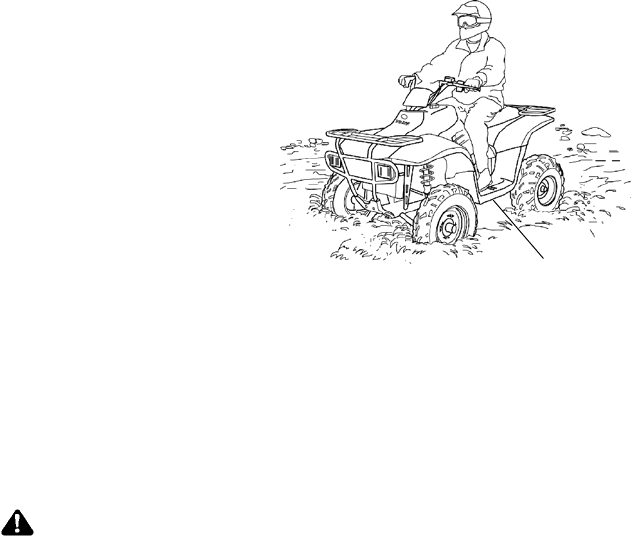
53
OPERATION
Driving Safely
Driving Through Water
Your ATV can operate
through water with a
maximum recommended
depth equal to the bottom of
the footrests (1). Follow
these procedures when
operating through water:
1. Determine water
depths and current
before crossing.
2. Choose a crossing where
both banks have gradual inclines.
3. Proceed slowly, avoiding rocks and obstacles if possible.
4. After crossing, dry the brakes by applying light pressure to the
lever until braking action is normal.
After running the vehicle in water, it’s critical to have it serviced as
outlined in the maintenance chart. See page 58. The following areas
need special attention: engine oil, transmission oil, front and rear
gearcases, and all grease fittings.
CAUTION
Major engine damage can result if the vehicle is not thoroughly
inspected after operation in water. Perform the services outlined
in the maintenance chart.
If your vehicle becomes immersed or is operated in water that
exceeds the footrest level, take it to your dealer for service before
starting the engine.
NOTE: Avoid operating the vehicle through deep or fast-flowing
water. If you cannot avoid water that exceeds the
recommended maximum depth, go slowly, balance your
weight carefully, avoid sudden movements, and maintain a
slow and steady forward motion. Do not make sudden turns
or stops, and do not make sudden throttle changes.
If your vehicle becomes immersed, and it’s impossible to take it to a
dealer before starting it, follow the steps described on page 86. Have
the vehicle serviced by your dealer at the first opportunity.
1


















